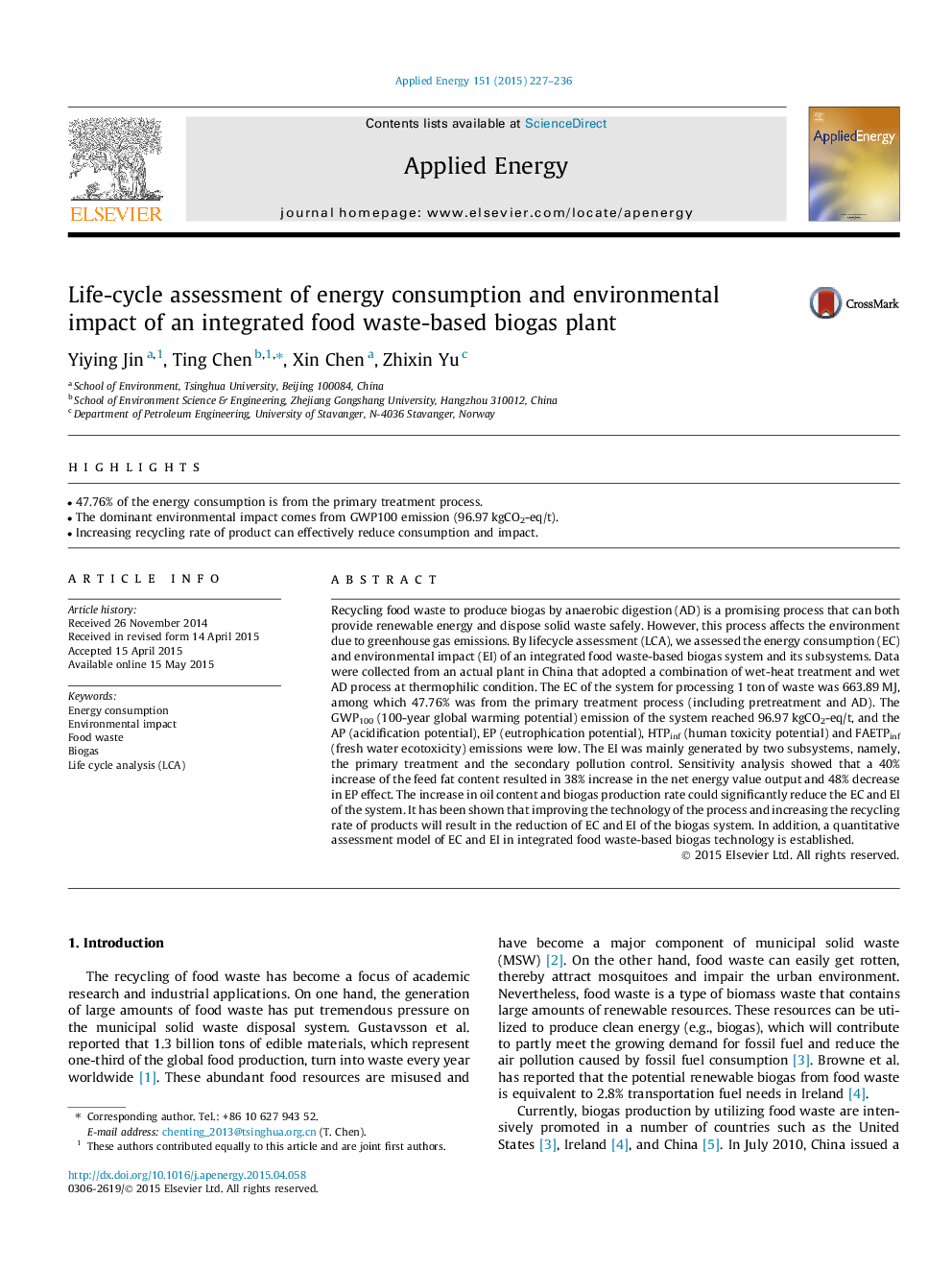| Article ID | Journal | Published Year | Pages | File Type |
|---|---|---|---|---|
| 242470 | Applied Energy | 2015 | 10 Pages |
•47.76% of the energy consumption is from the primary treatment process.•The dominant environmental impact comes from GWP100 emission (96.97 kgCO2-eq/t).•Increasing recycling rate of product can effectively reduce consumption and impact.
Recycling food waste to produce biogas by anaerobic digestion (AD) is a promising process that can both provide renewable energy and dispose solid waste safely. However, this process affects the environment due to greenhouse gas emissions. By lifecycle assessment (LCA), we assessed the energy consumption (EC) and environmental impact (EI) of an integrated food waste-based biogas system and its subsystems. Data were collected from an actual plant in China that adopted a combination of wet-heat treatment and wet AD process at thermophilic condition. The EC of the system for processing 1 ton of waste was 663.89 MJ, among which 47.76% was from the primary treatment process (including pretreatment and AD). The GWP100 (100-year global warming potential) emission of the system reached 96.97 kgCO2-eq/t, and the AP (acidification potential), EP (eutrophication potential), HTPinf (human toxicity potential) and FAETPinf (fresh water ecotoxicity) emissions were low. The EI was mainly generated by two subsystems, namely, the primary treatment and the secondary pollution control. Sensitivity analysis showed that a 40% increase of the feed fat content resulted in 38% increase in the net energy value output and 48% decrease in EP effect. The increase in oil content and biogas production rate could significantly reduce the EC and EI of the system. It has been shown that improving the technology of the process and increasing the recycling rate of products will result in the reduction of EC and EI of the biogas system. In addition, a quantitative assessment model of EC and EI in integrated food waste-based biogas technology is established.
